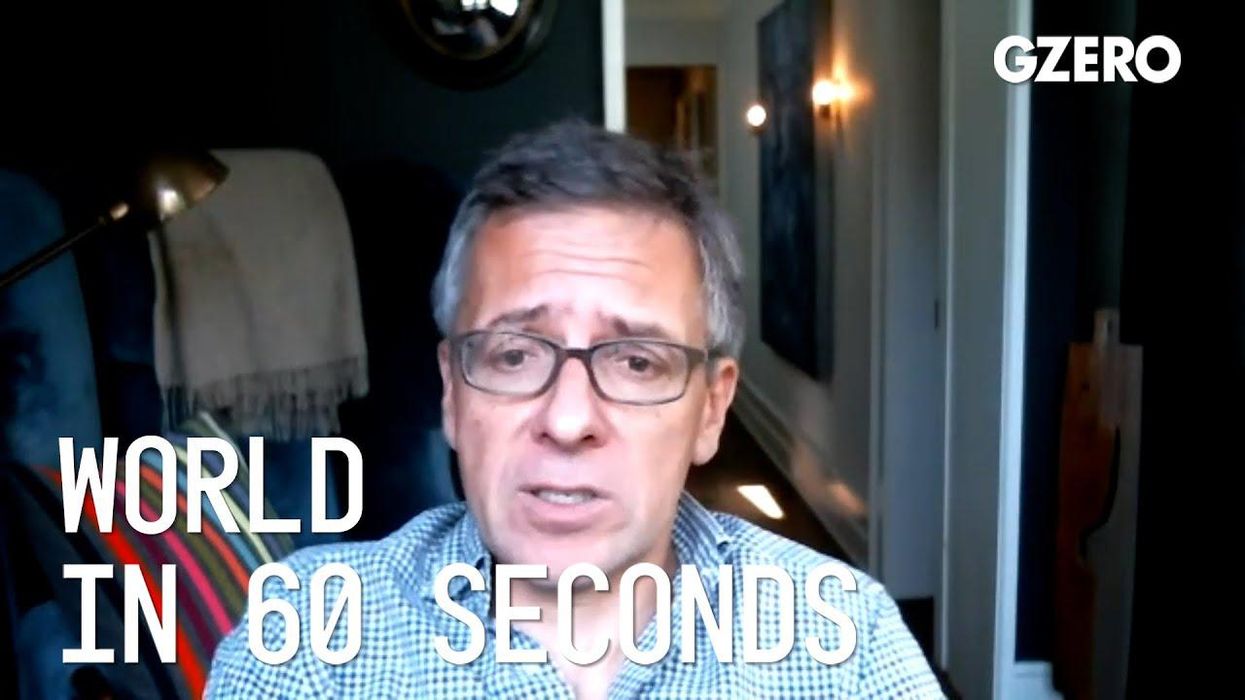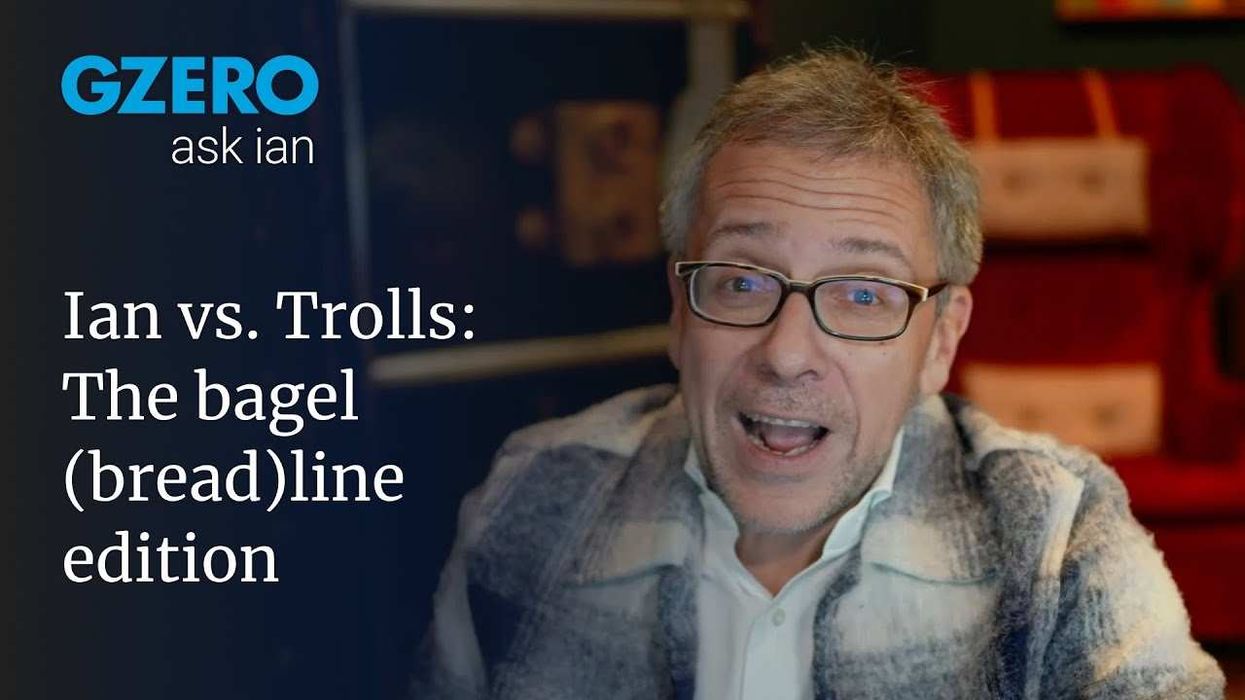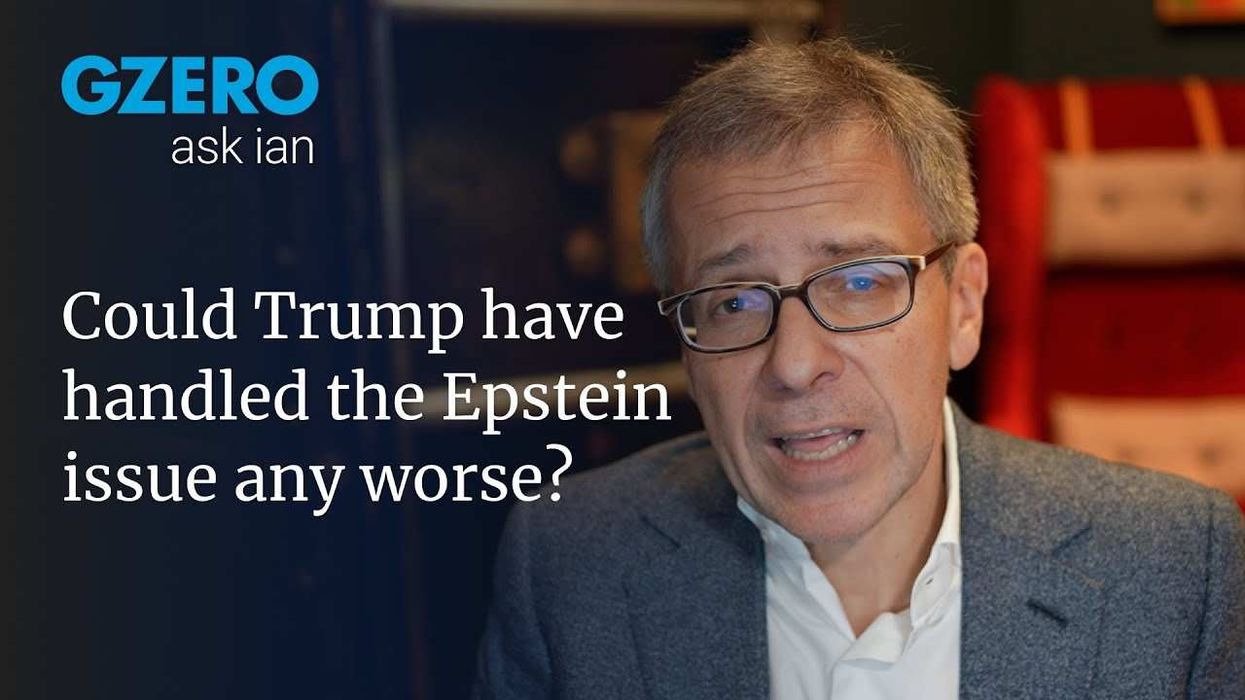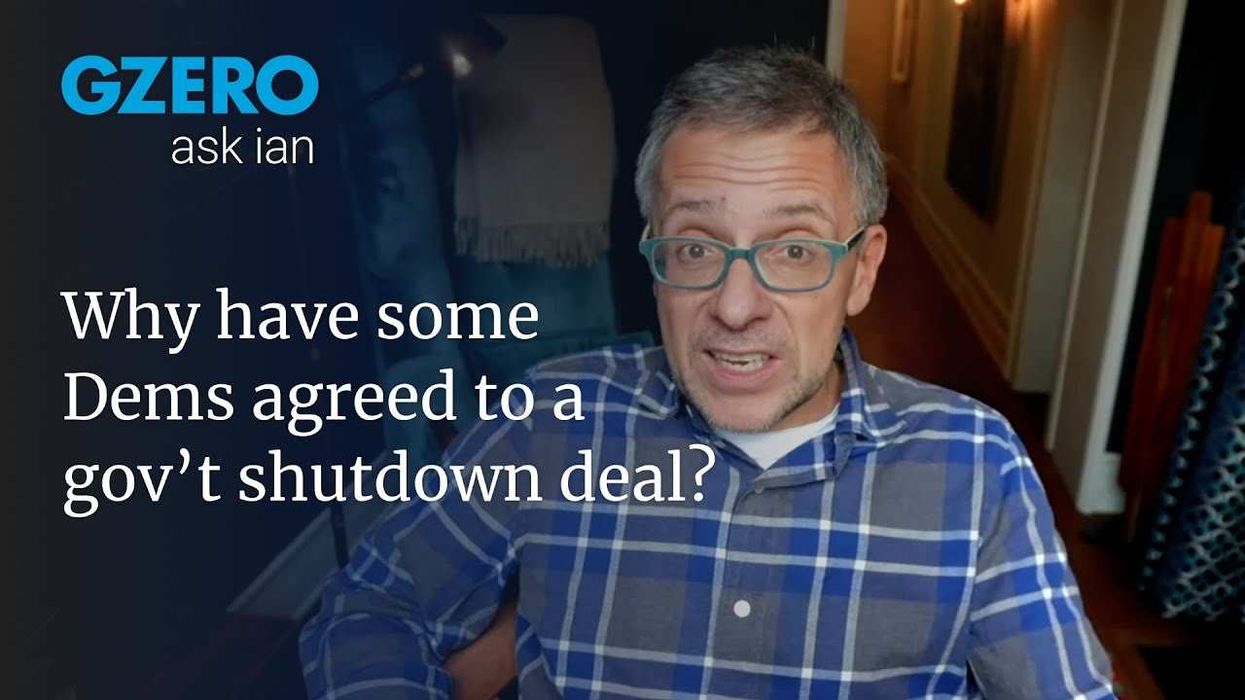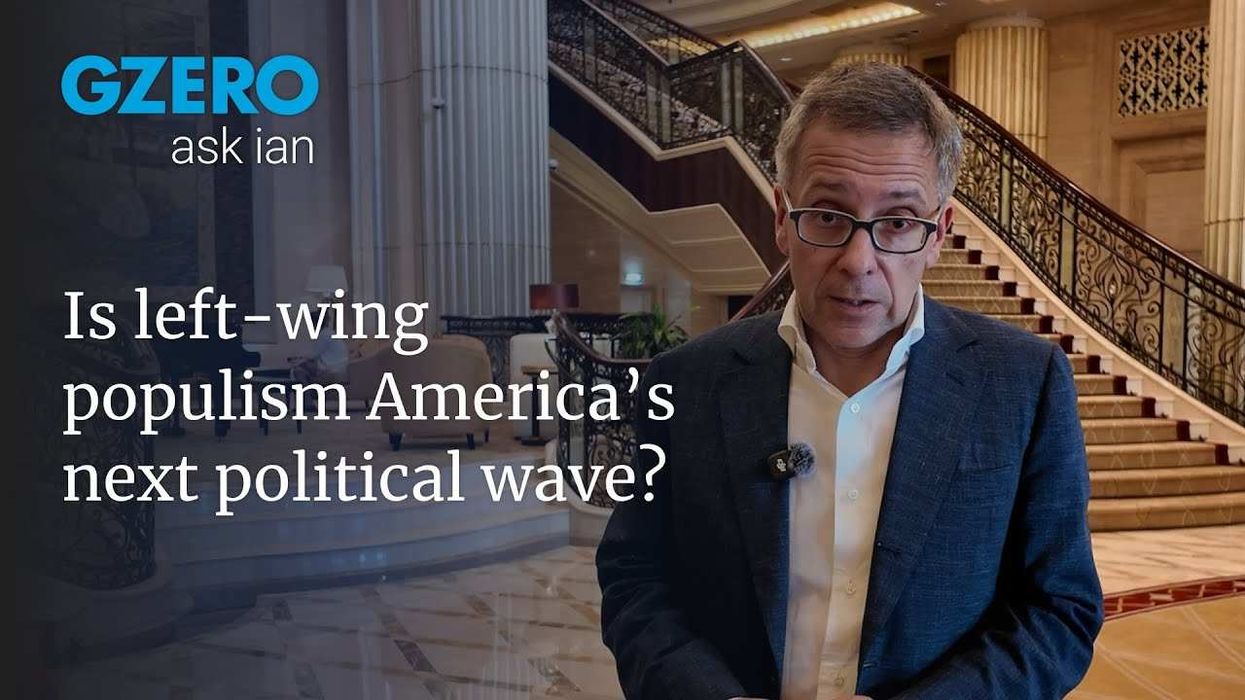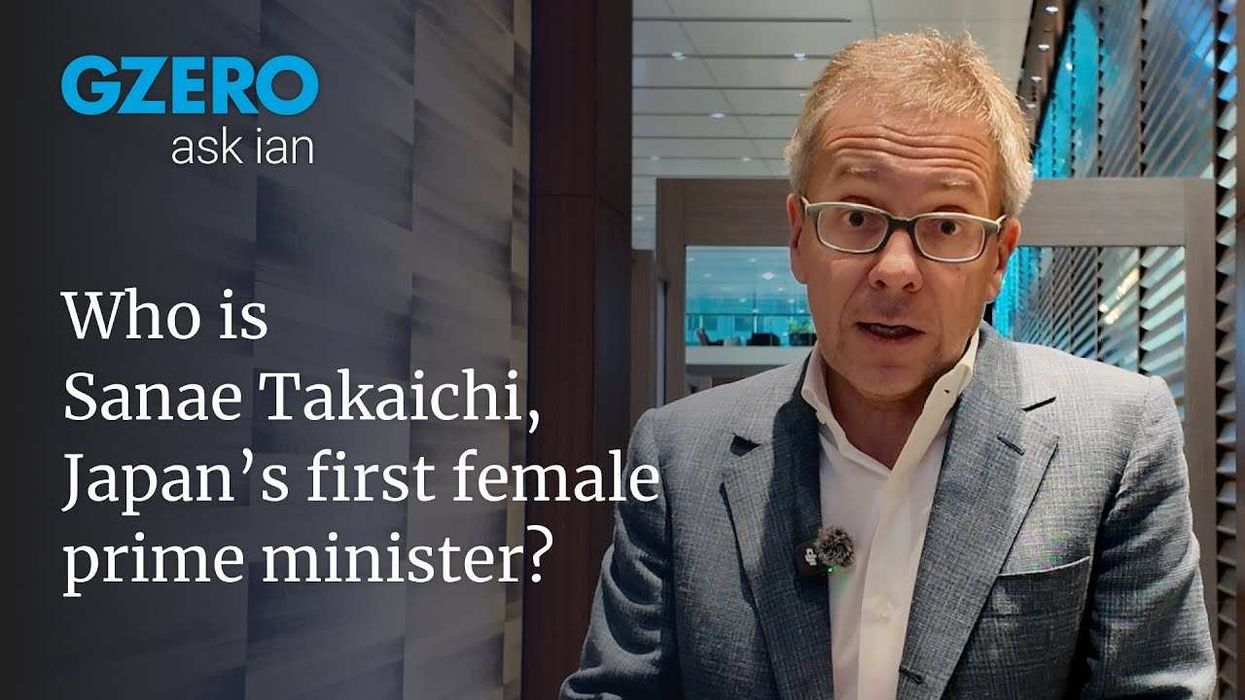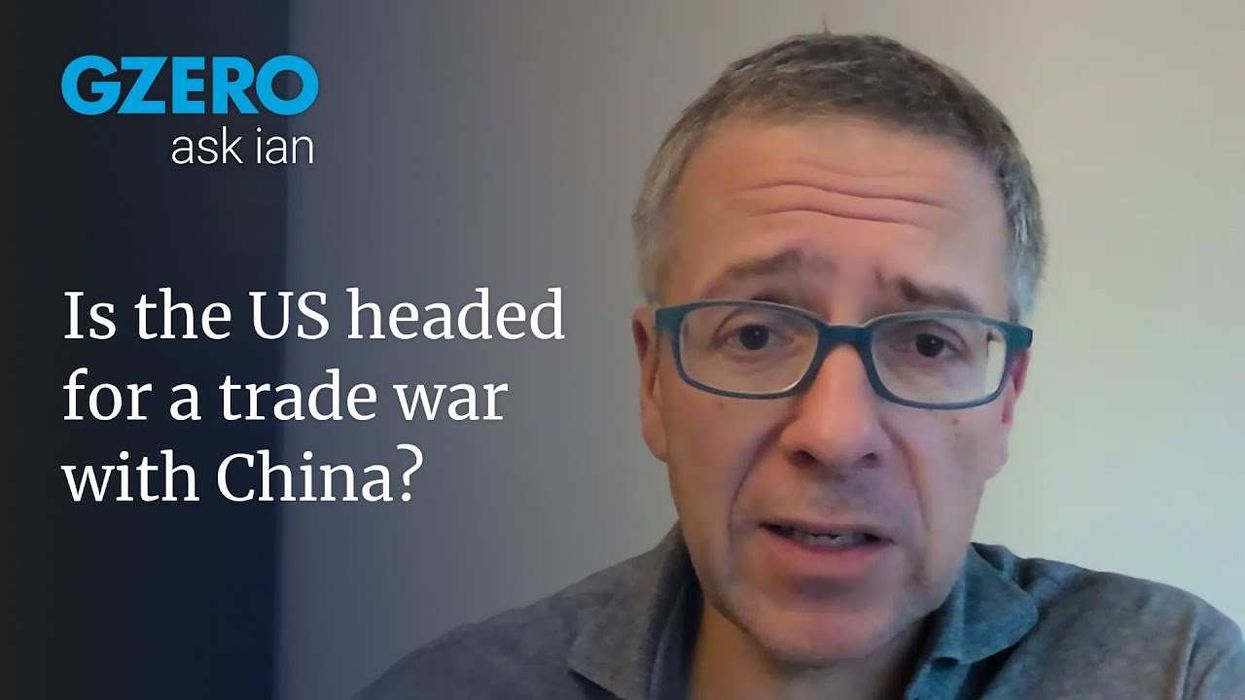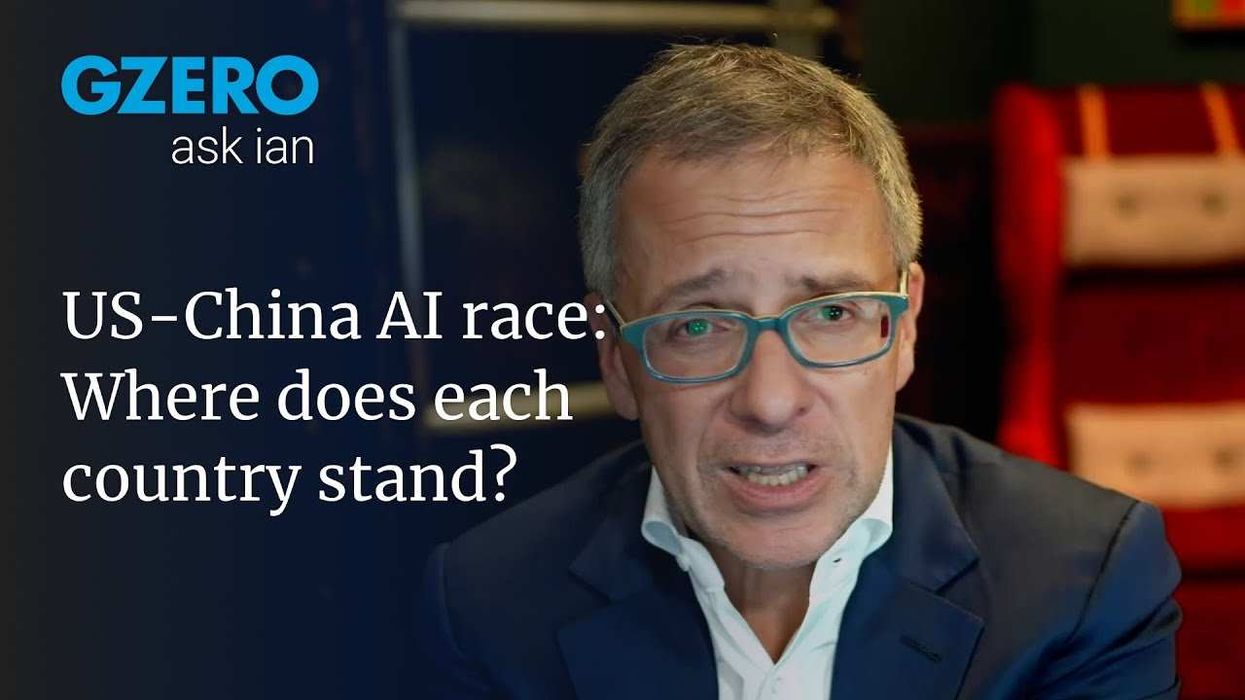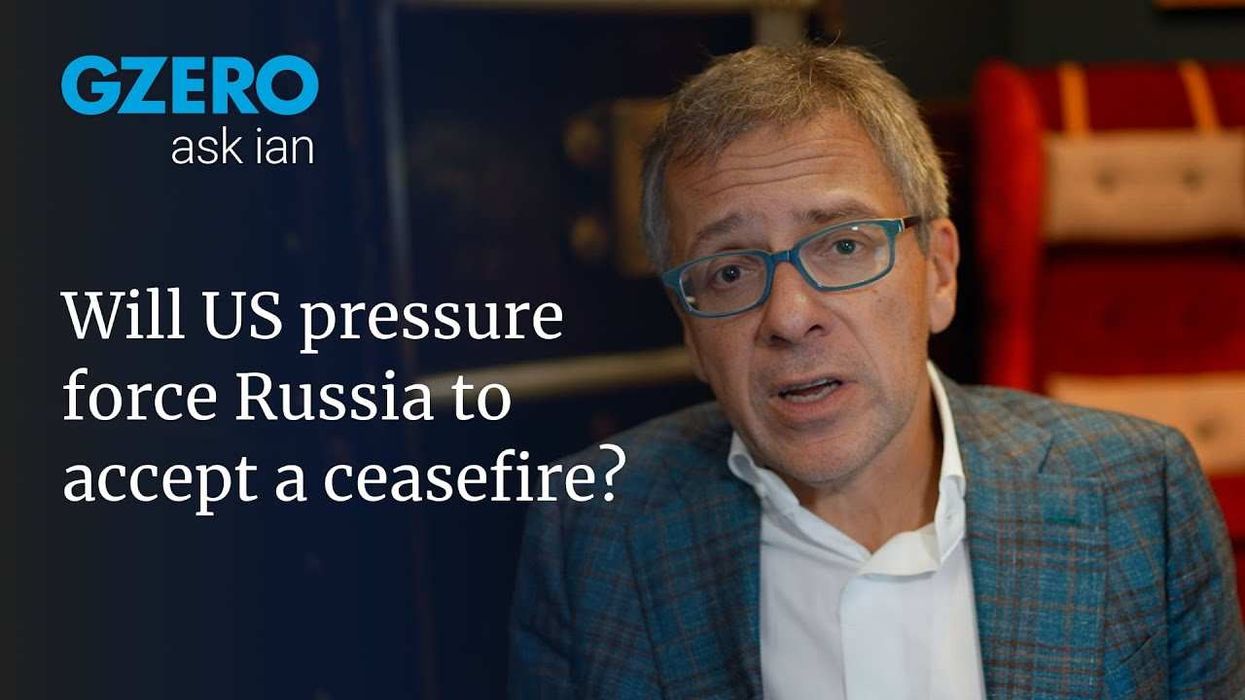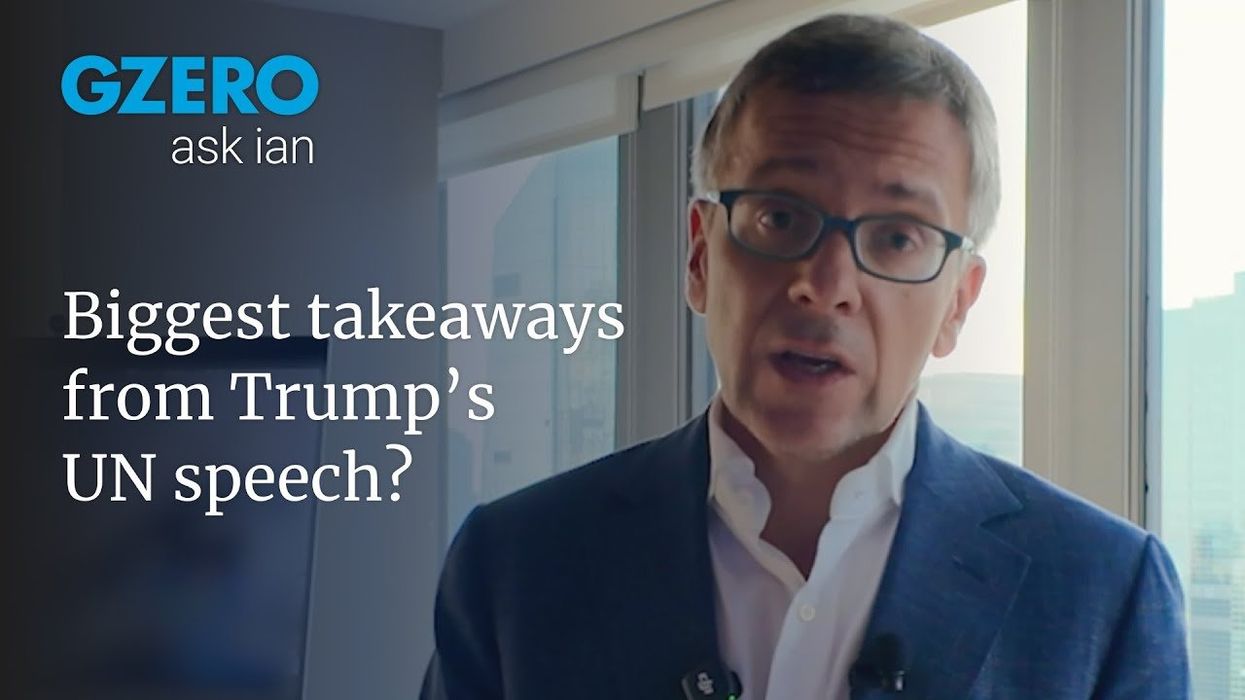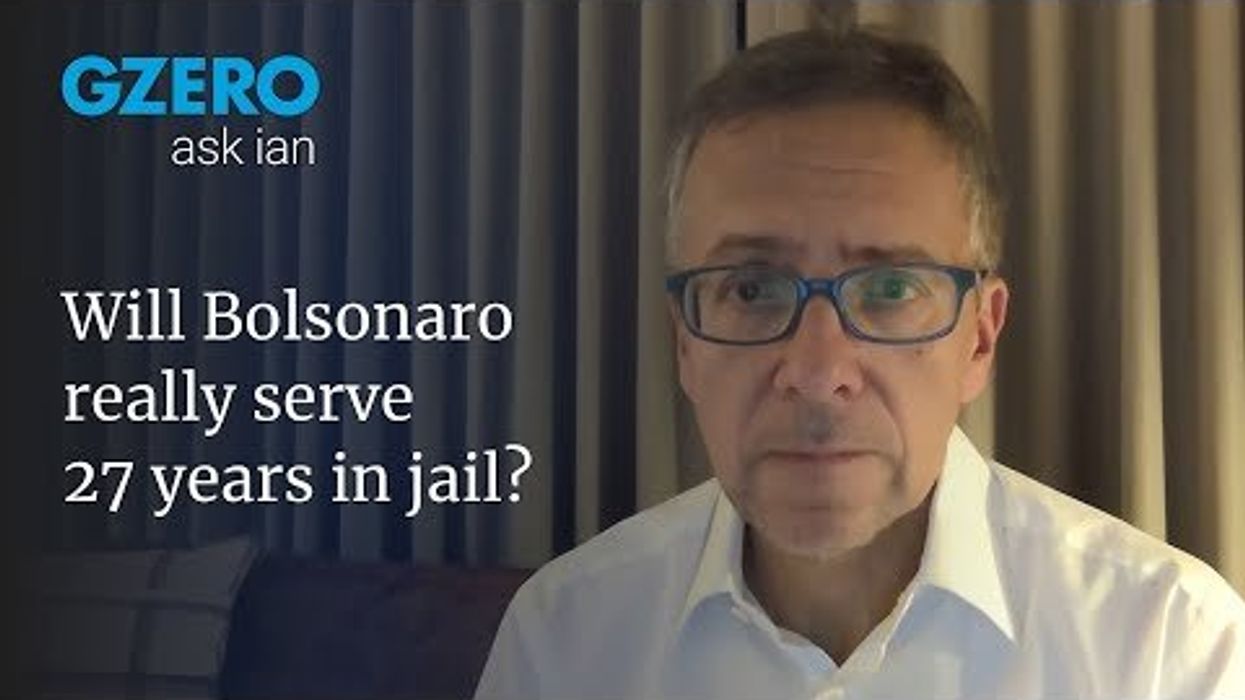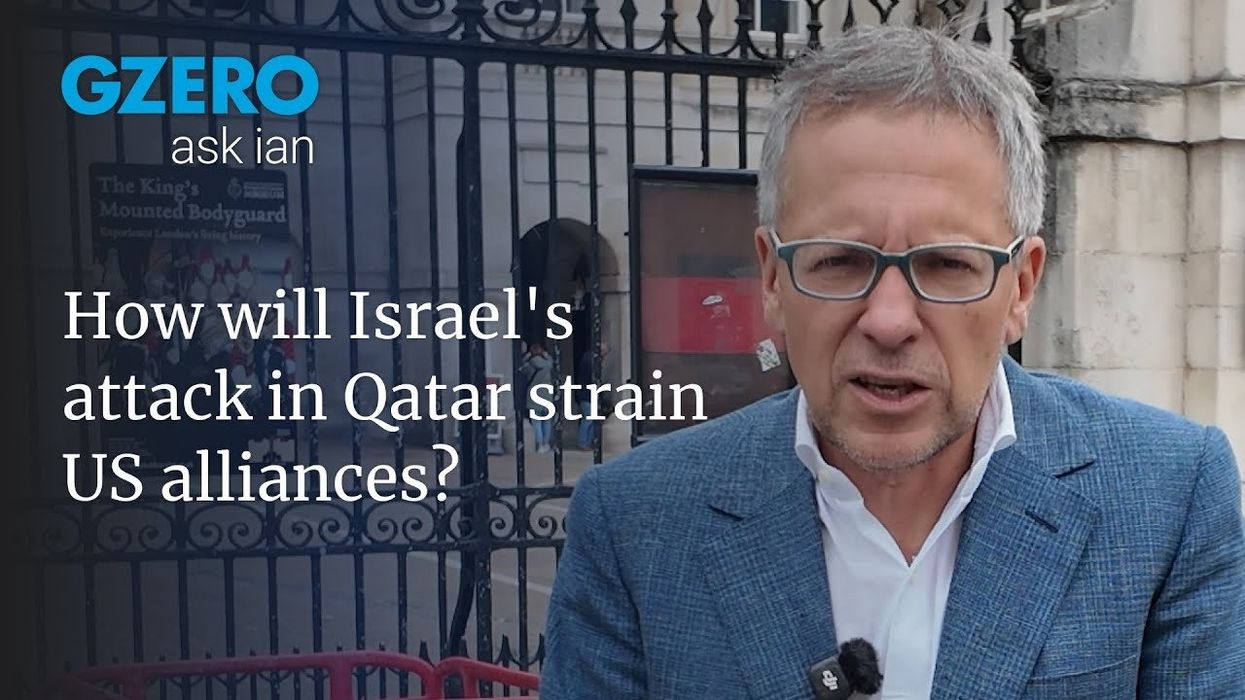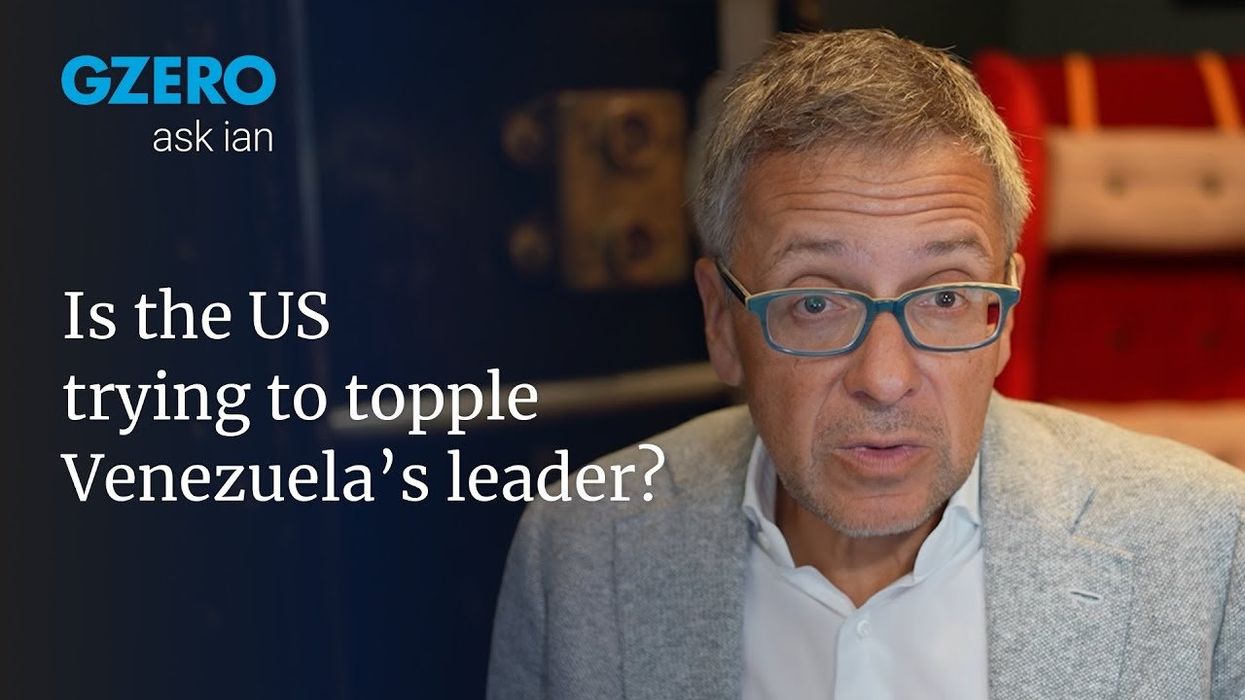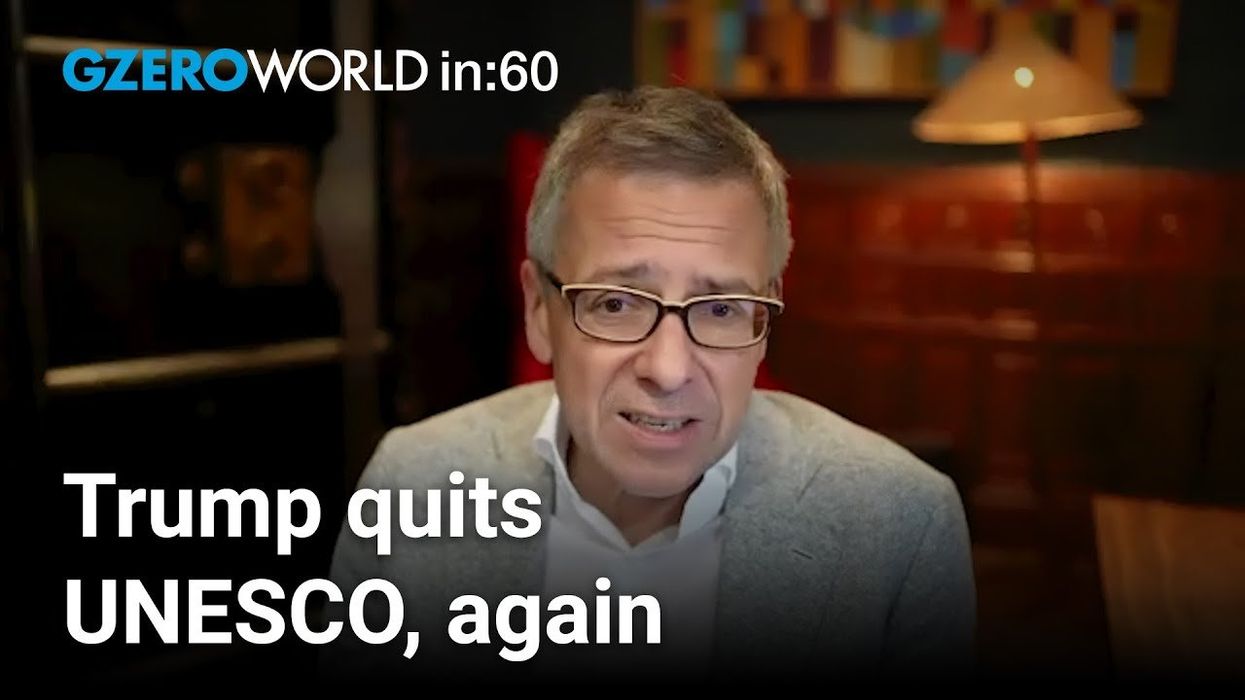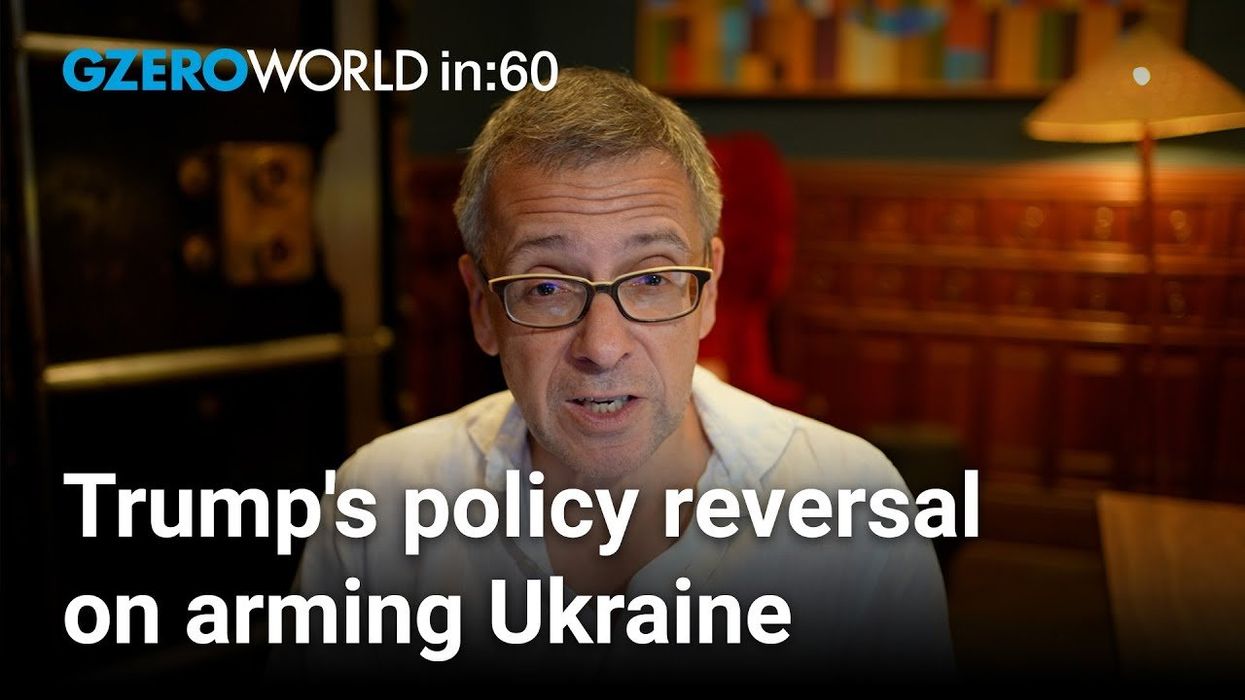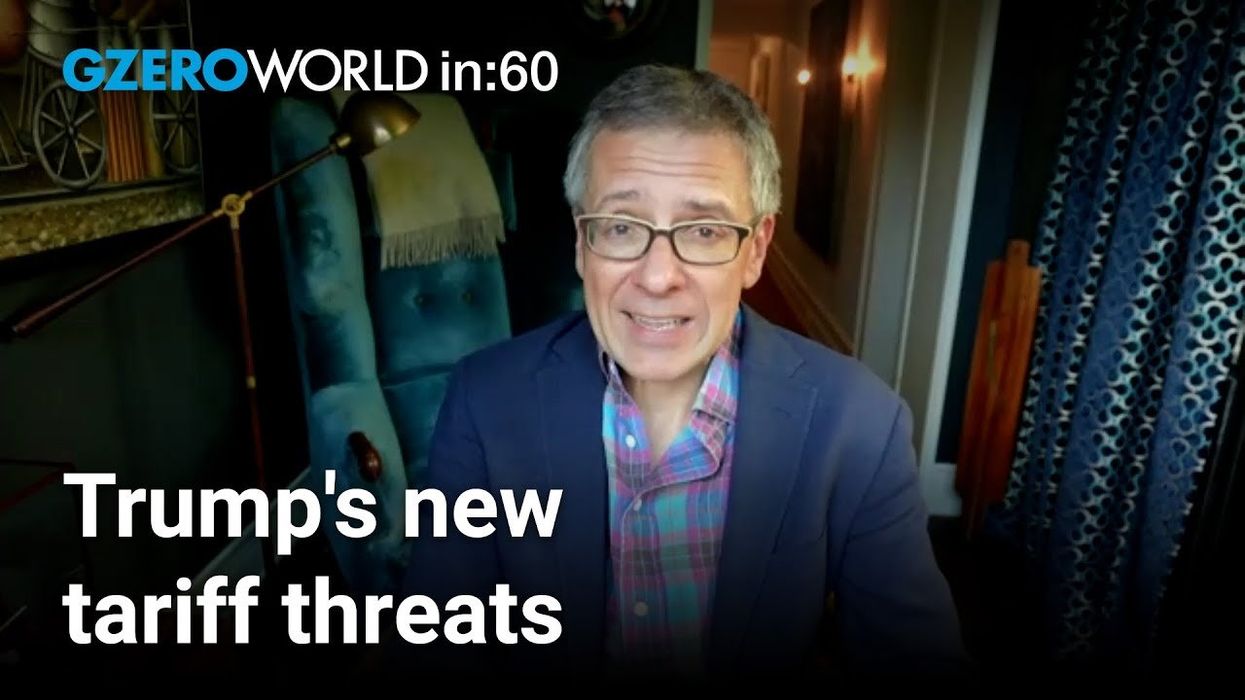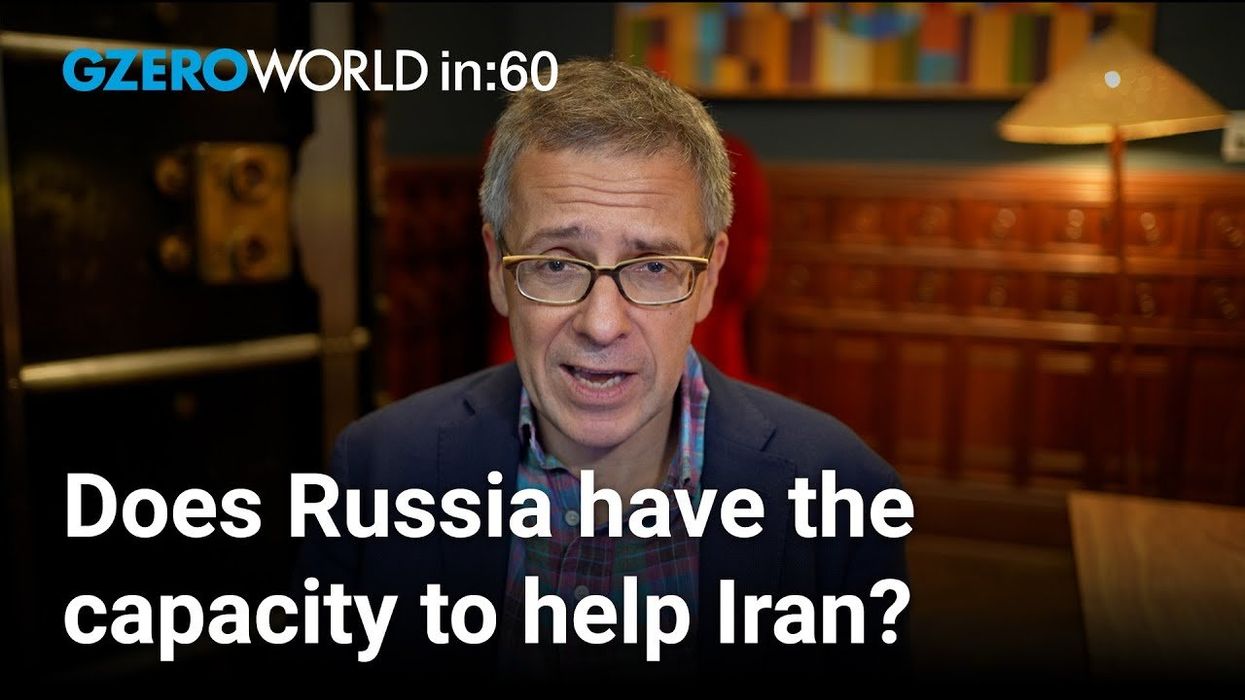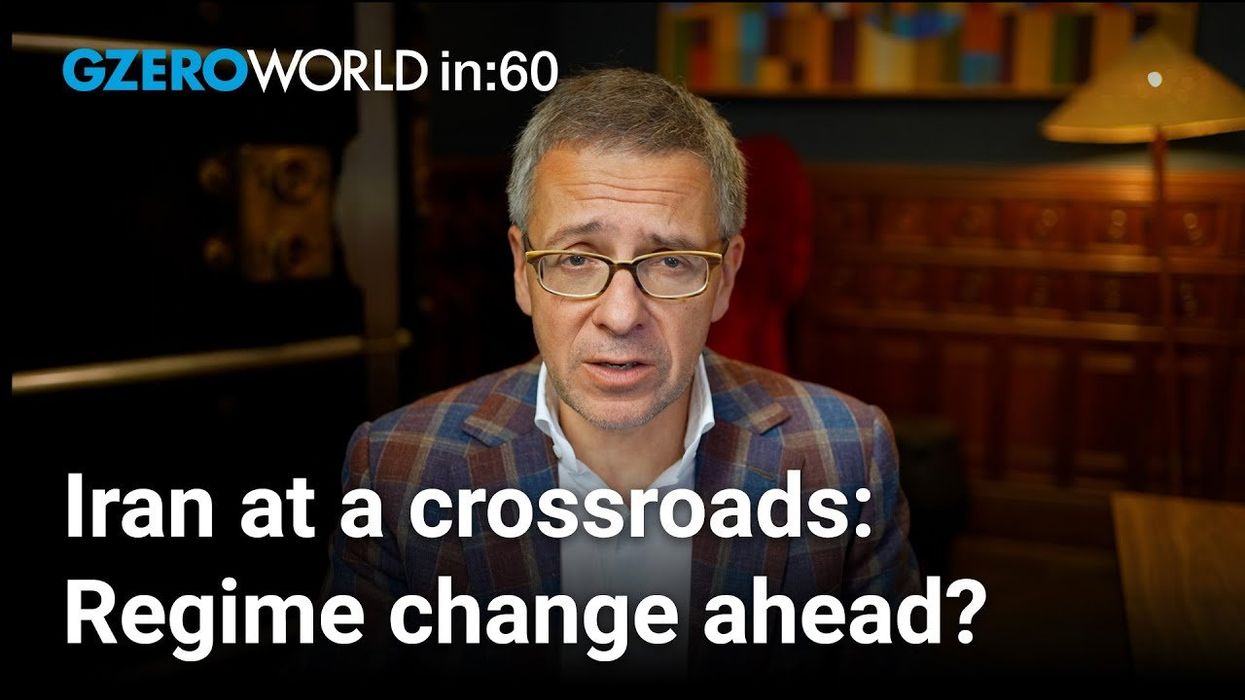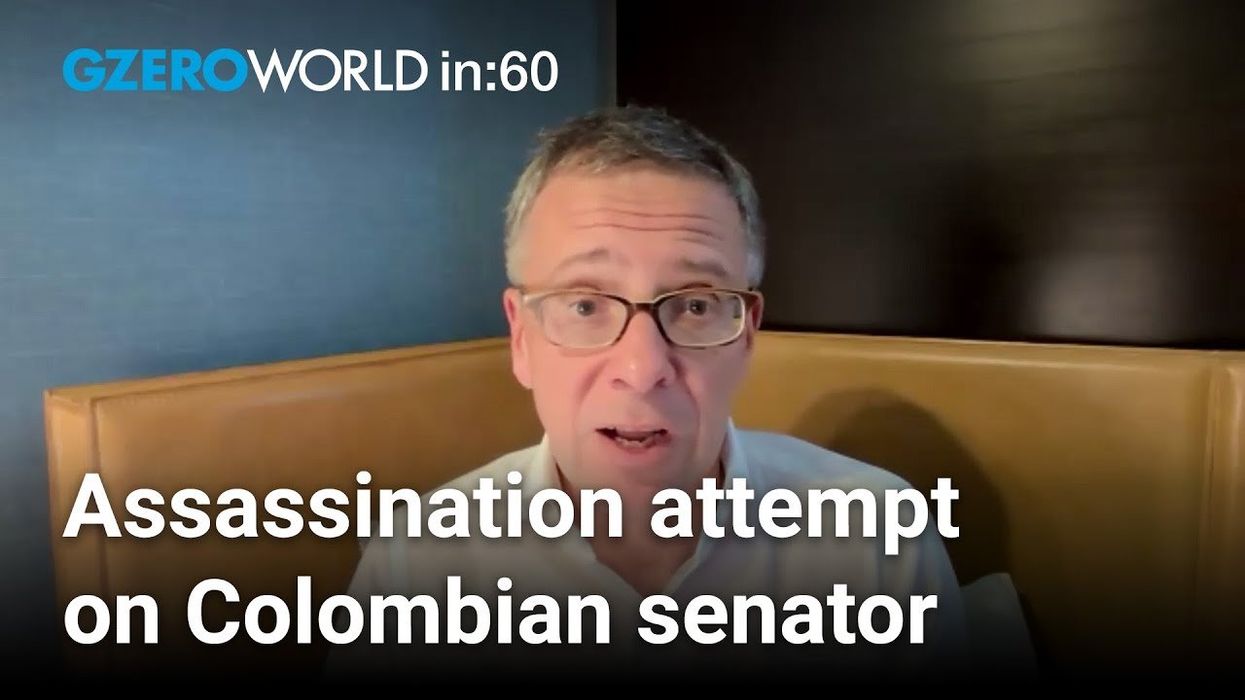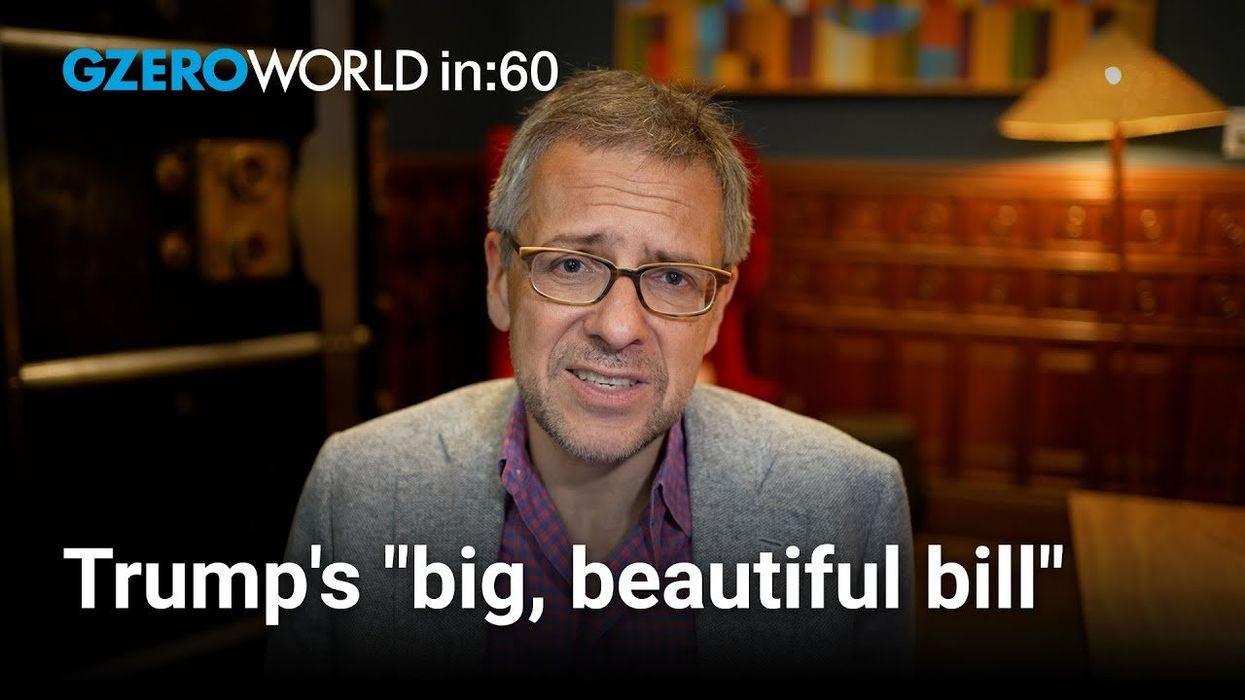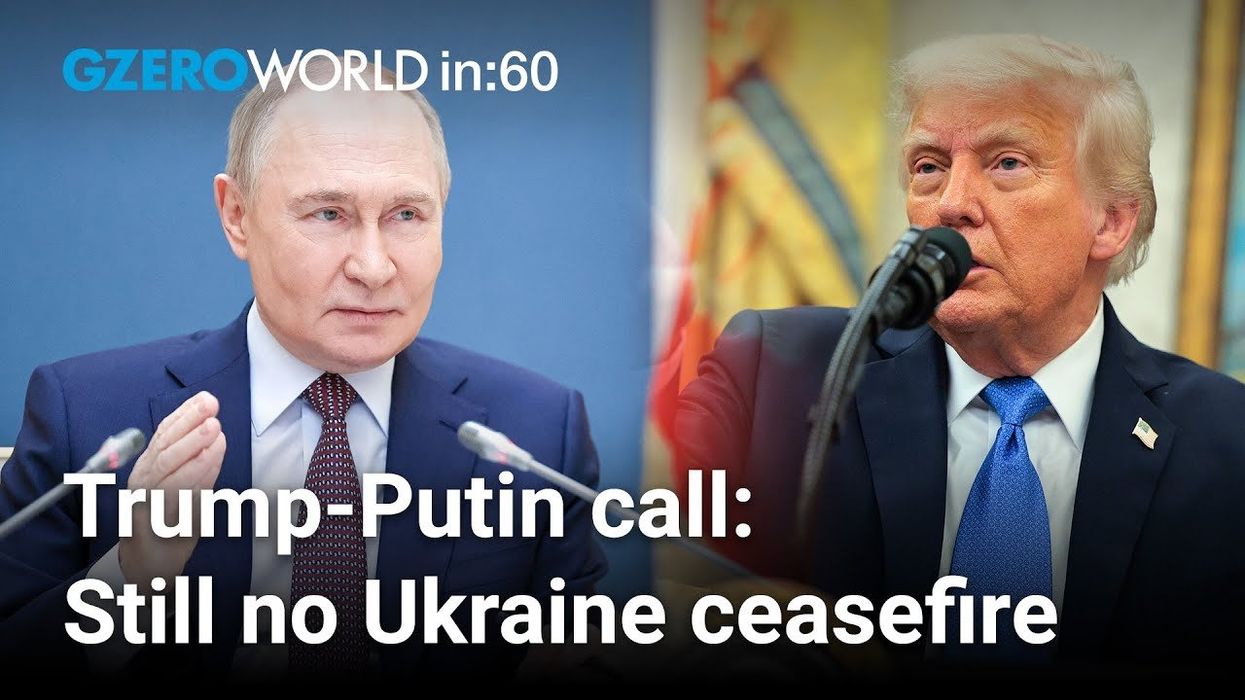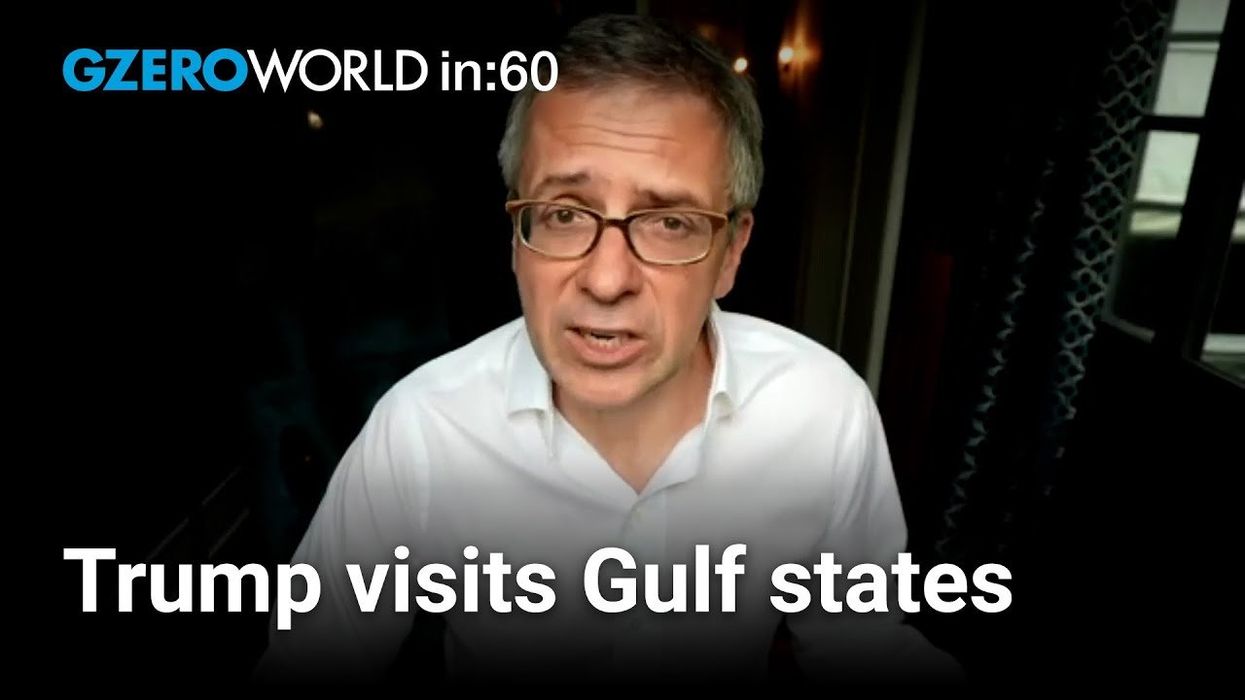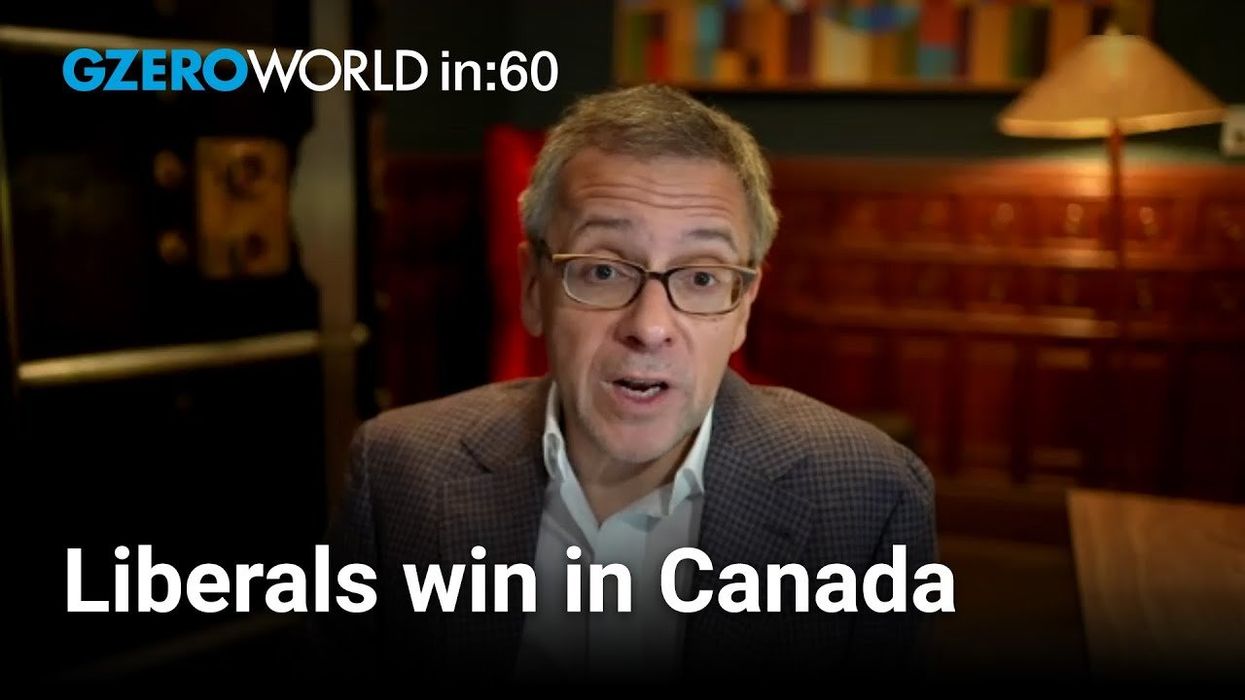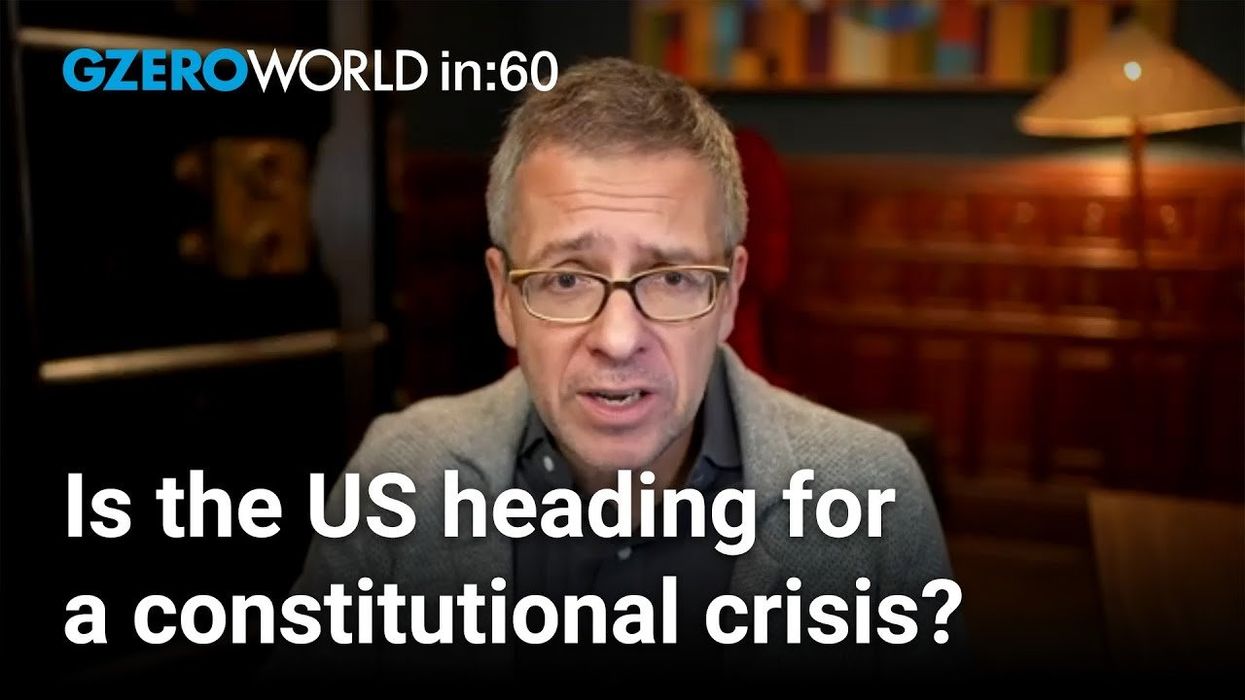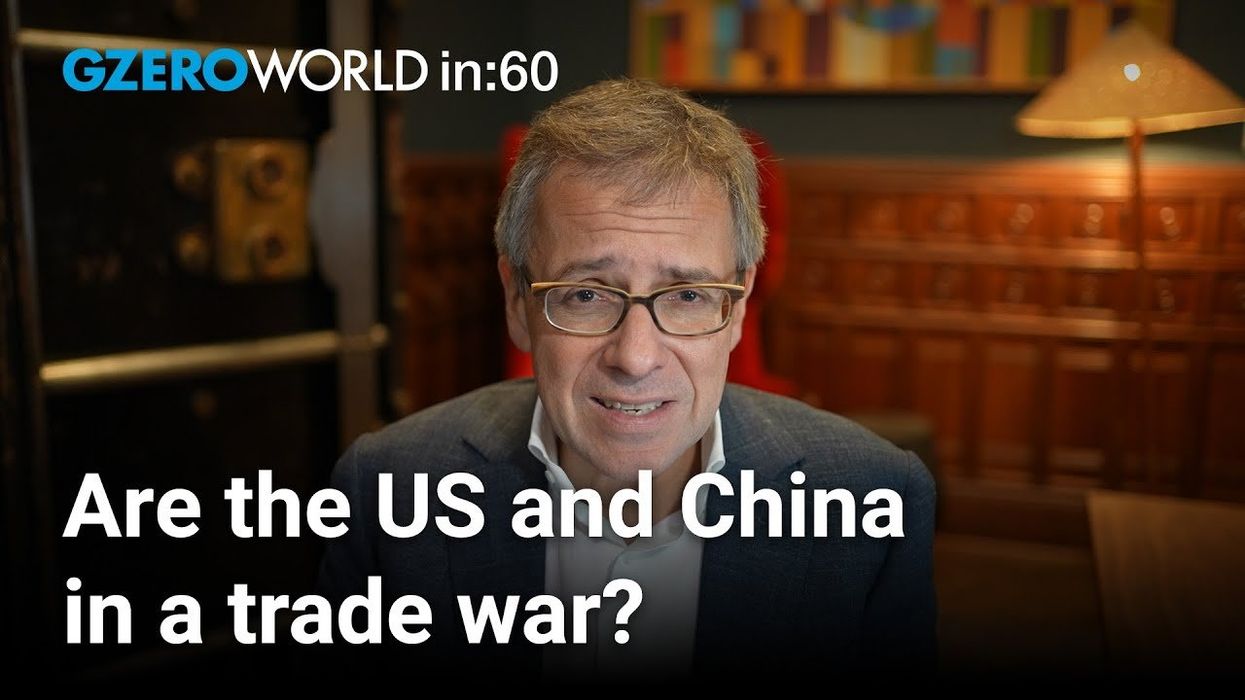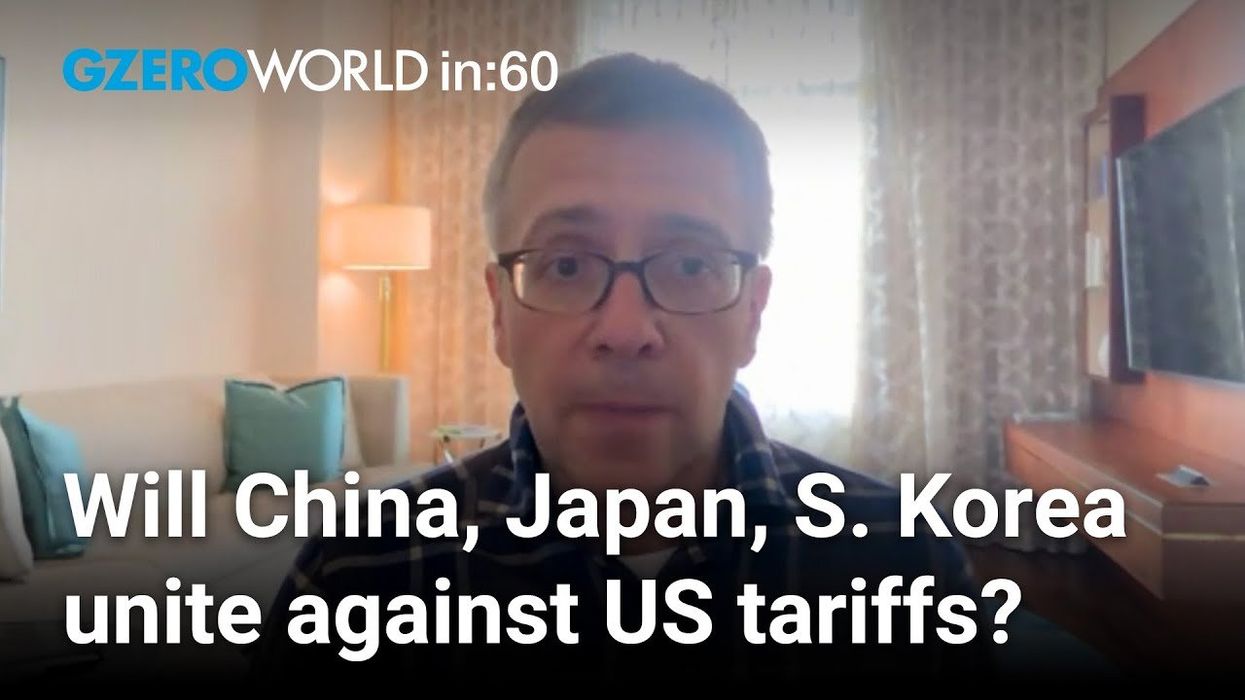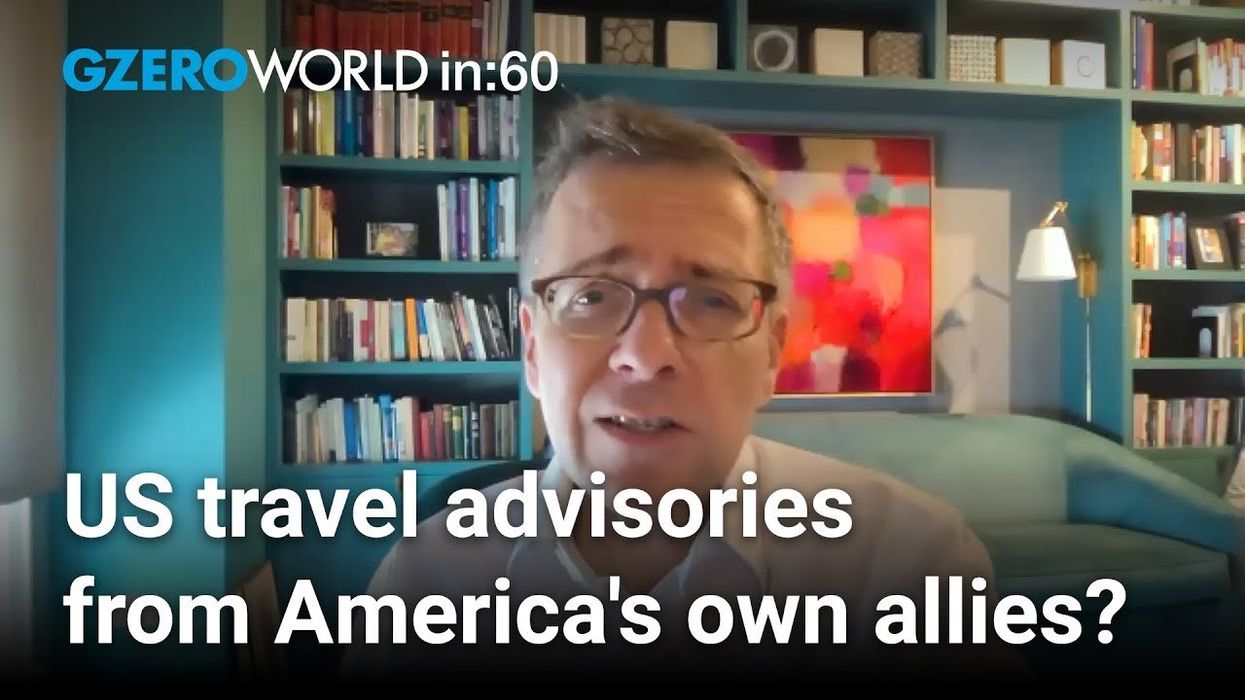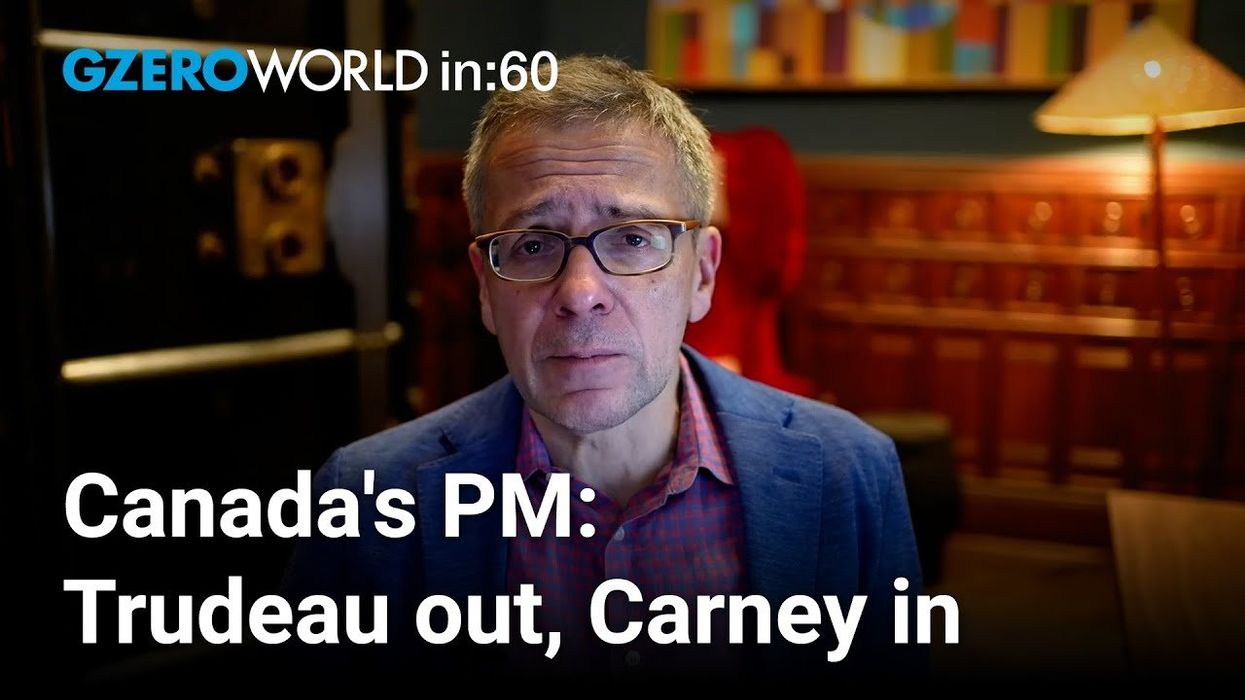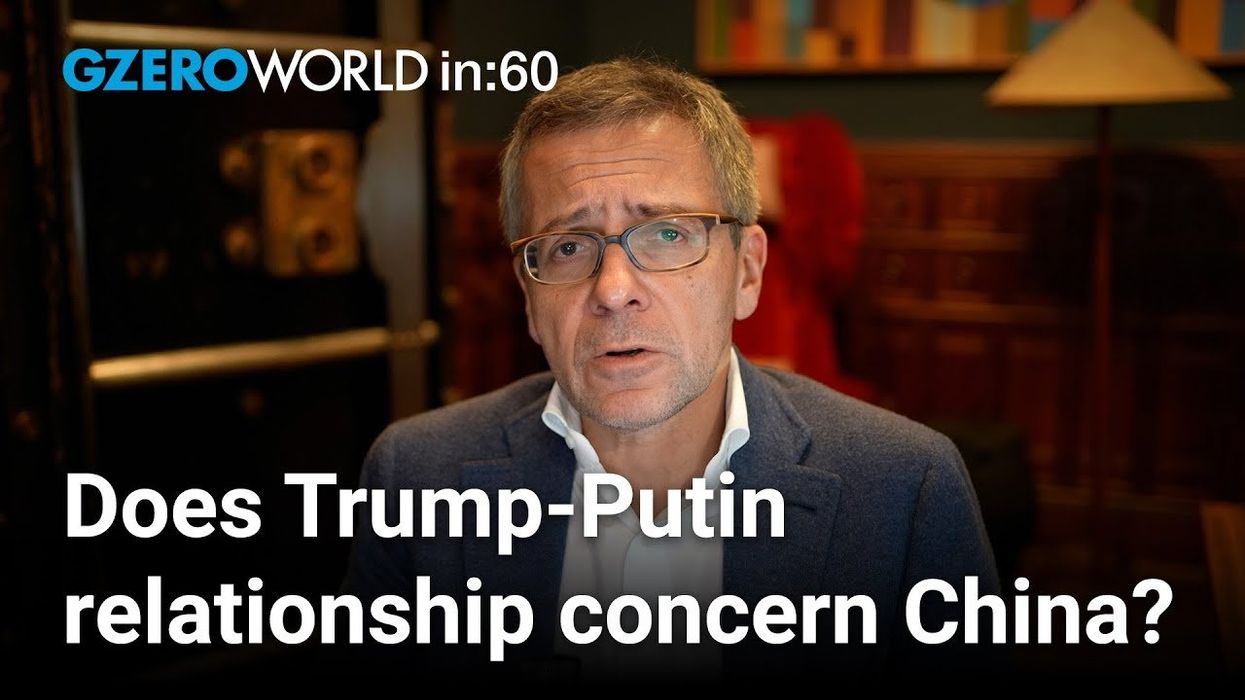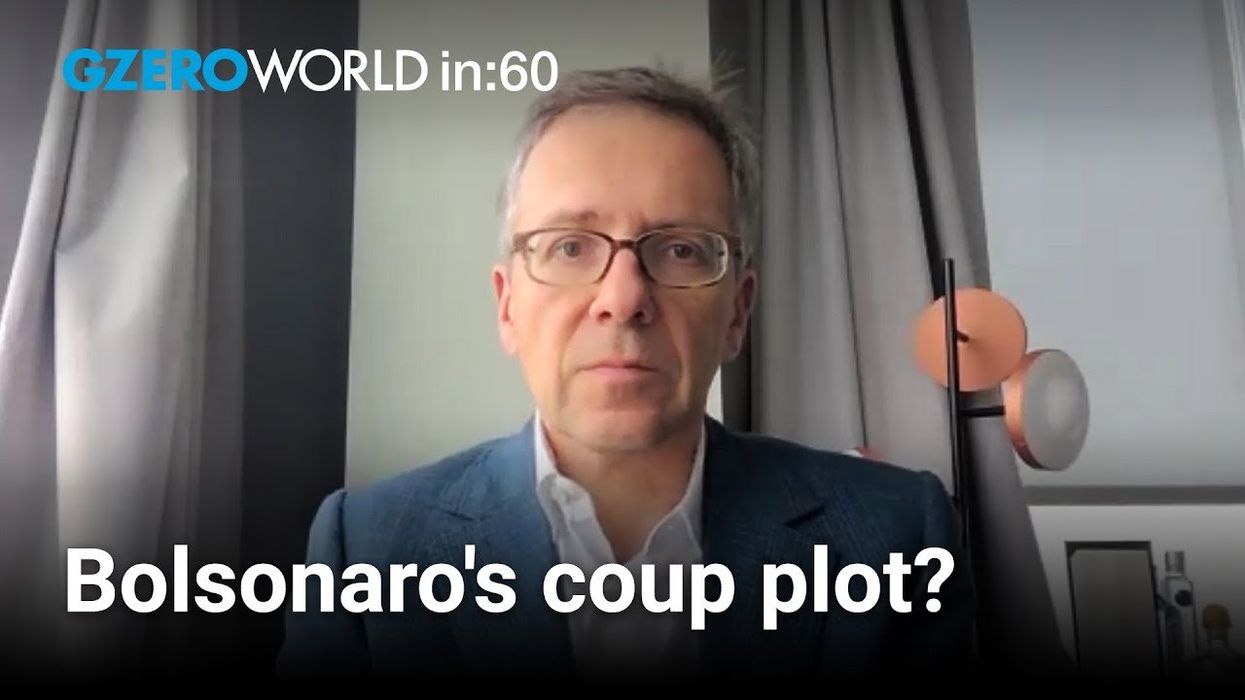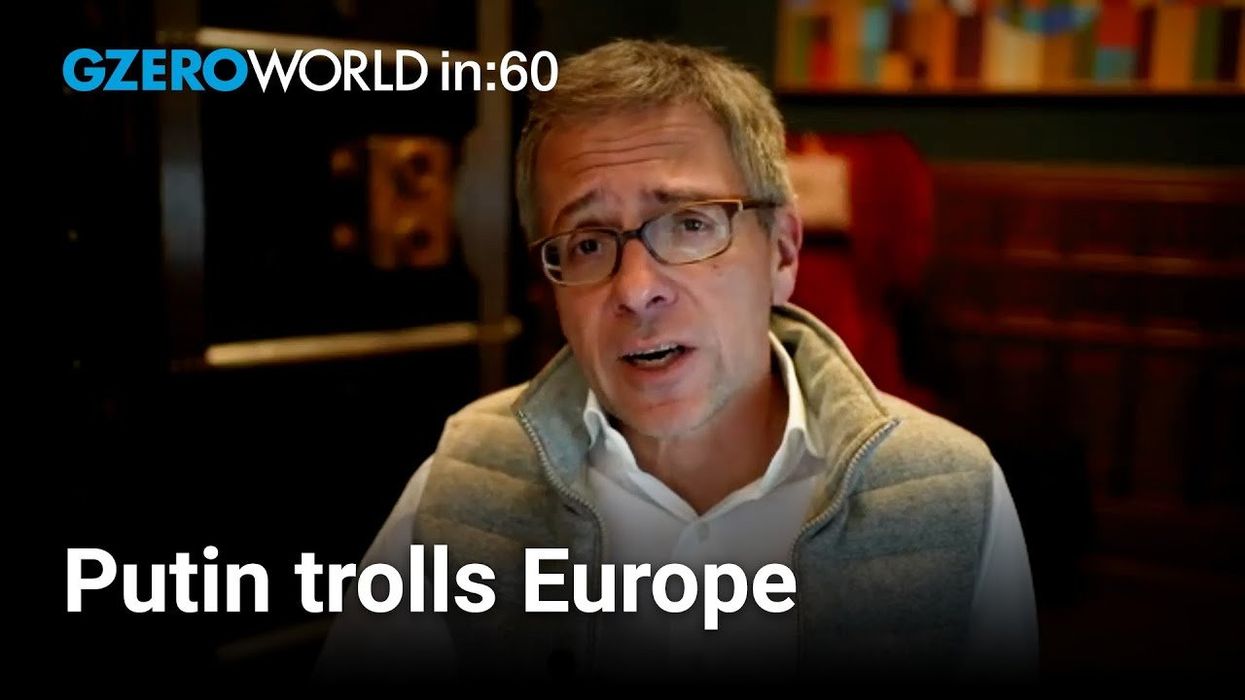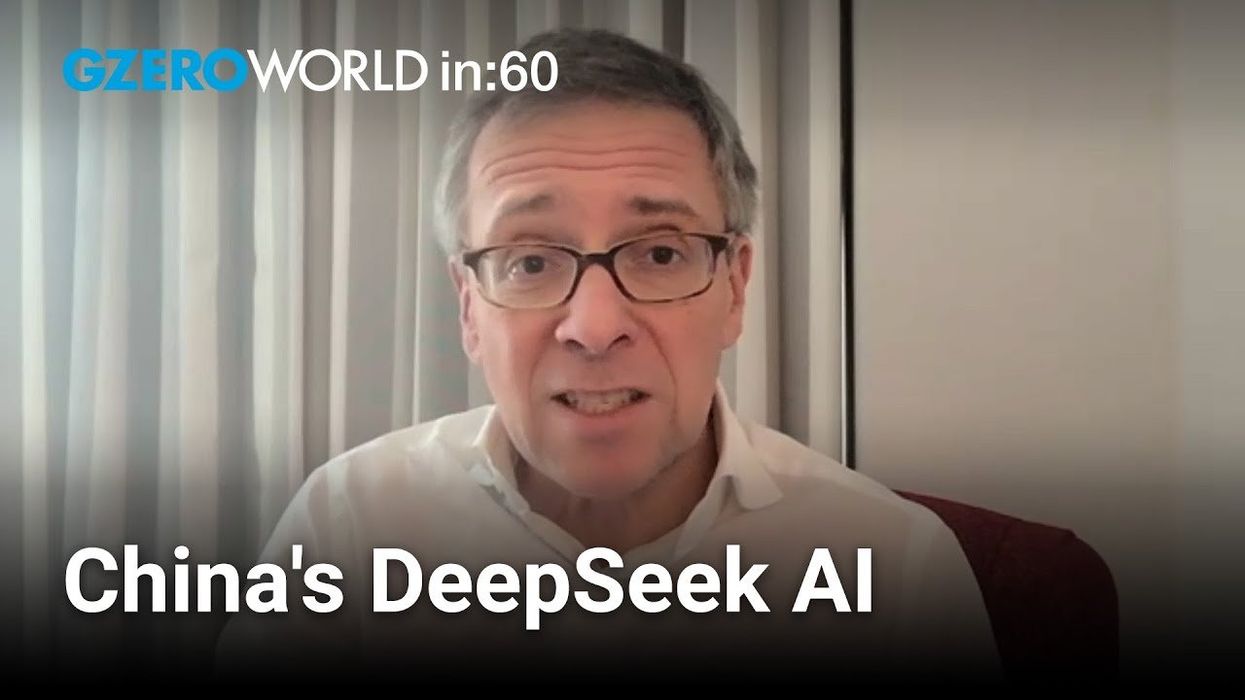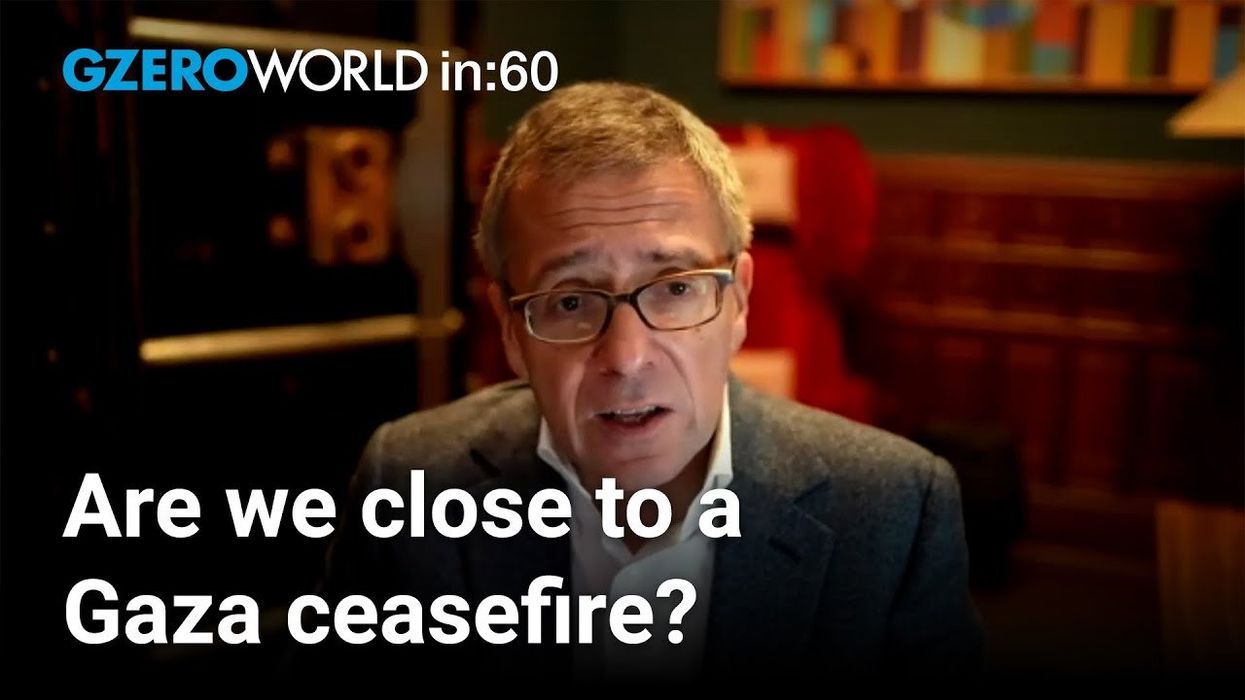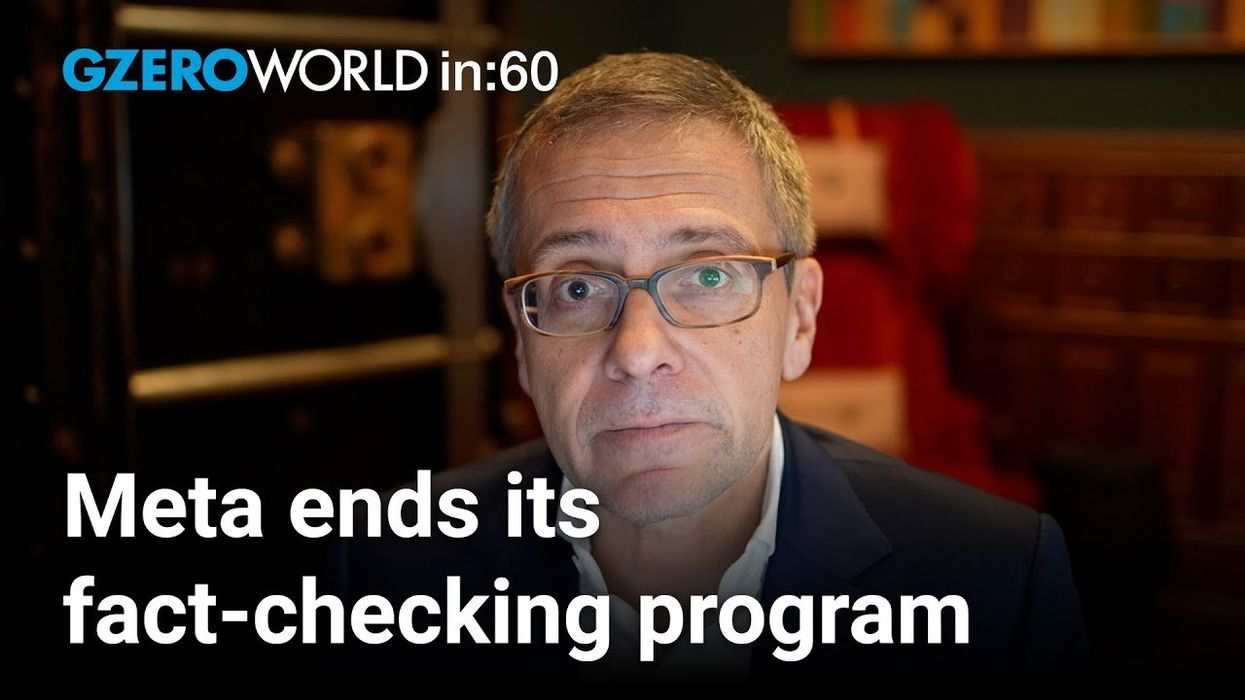VIDEOSGZERO World with Ian BremmerQuick TakePUPPET REGIMEIan ExplainsGZERO ReportsAsk IanGlobal Stage
Site Navigation
Search
Human content,
AI powered search.
Latest Stories
Sign up for GZERO Daily.
Get our latest updates and insights delivered to your inbox.
Global Stage: Live from Munich
WATCH RECORDING
Ian Bremmer shares his insights on global politics this week on World In :60.
With the US speeding up military aid to Ukraine, can the West coax an end to the war soon?
I don't think so and I'm not sure that's related to how much military aid the West is providing Ukraine. I do think we're getting closer to a frozen conflict because the Russians aren't doing a general mobilization. It'd be very unpopular in Russia for Putin to manage that, which means that their forces are nearly spent. They can't take more territory than the Donbas max with what they have right now. So beyond that and the Ukrainians with some counter offensives, which also will be pretty limited as we're starting to see happening in Kherson in the south, that's probably where we are for the coming months, but that's freezing the conflict near term. That's not an end to the war. That's not, the Russians and Ukrainians are happy with where they are, that you get ceasefire negotiations that could create peace, especially with the Russians likely annexing part of Ukraine. This is I think a war for the duration for a much longer period of time. It's also confrontation between Russia and NATO that so far hasn't been very sharp, but is likely to play out more sharply over time with disinformation attacks and espionage and cyber and all the rest.
Is China still planning years of zero-COVID strategy?
Maybe not years, but definitely a year. I think until the Chinese government is able to get their elderly population near fully vaccinated, they're not close to that yet, and or get therapeutics that work at scale, they need zero-COVID. And let's keep in mind that this disease, this virus is still morphing. It's making it much harder for new vaccines to be developed in the West. China's vaccines aren't as effective. And of course there's always the possibility that a new variant shows up that is more lethal than what we've had through the Omicron variants. And that would be incredibly dangerous for China and would make them maintain zero-COVID for much longer. So in the worst case scenarios, they're going to need zero-COVID until the variants become something that everyone can deal with in China. We're not close to that. And in the best case scenario, we're still talking about probably another six months minimum of zero-COVID that's going to be rolling across cities around the country. So that's what I see right now. And I absolutely believe the Chinese are fully planning on that.
And then will the global food crisis get political?
Yeah, I think it's interesting. Right now it's political in the sense that a lot of the developing countries are blaming the West for not caring about them, refusing equitable redistribution through the pandemic and through the Russia war and as a consequence, focusing more on how they can take care of themselves, which means more protectionism. But that protectionism is of course political. It is willingness to accept lack of efficiency and not getting the best price to ensure that your population is fed, that your population is taken care of. And I think going forward, there's going to be a lot more of that. It'll be interesting to see whether or not the developing world is equally angry at the West for this as they are with the Chinese for lots of investments on the ground in their countries to get access to food for the Chinese population. Because of course they're significant importers too. And in places like Sub-Saharan Africa, the Chinese are writing all the big checks, but they're also the ones taking out a lot of the resources in a way that the Europeans and the Americans were 50 years ago and that led to a lot of backlash against the advanced industrial democracy. So we'll watch how all that plays out, but certainly the food crisis is a deeply political crisis.
Keep reading...Show less
More from ask ian
Trump–Zelensky meeting at Mar-a-Lago
December 29, 2025
Is the US heading toward military strikes in Venezuela?
December 22, 2025
Trump, loyalty, and the limits of accountability
December 16, 2025
Notre Dame, politics, and playing by their own rules
December 08, 2025
Trump threatens regime change in Venezuela
December 02, 2025
Is Trump’s trade strategy backfiring abroad?
November 25, 2025
Ian stands in line for a bagel, the internet melts down
November 21, 2025
Could Trump have handled the Epstein issue any worse?
November 17, 2025
Democrats divided over government shutdown deal
November 11, 2025
Zohran Mamdani and America's political future
November 04, 2025
Trump, Xi, and the new US–China standoff
October 14, 2025
US-China AI race: Dueling strategies and potential risks
October 07, 2025
Trump shifts on Russia: From carrots to sticks in Ukraine war
September 30, 2025
Trump’s UN speech: Sovereignty, security, and ending wars
September 23, 2025
Israel attacks and targets Hamas leadership in Qatar
September 10, 2025
US strike on vessel from Venezuela
September 03, 2025
Trump pulls US out of UNESCO, again
July 22, 2025
Trump announces new plan to arm Ukraine
July 15, 2025
Are NATO allies aligned on Iran?
June 24, 2025
Will Iran’s regime survive?
June 18, 2025
Trump-Musk rift over Trump's "big, beautiful bill"
June 04, 2025
What is Trump after in his latest Gulf states tour?
May 13, 2025
Why Mark Carney’s victory won’t heal the US-Canada rift
April 29, 2025
Trump tariff is starting a US-China trade war
April 08, 2025
What if Japan & South Korea sided with China on US tariffs?
April 01, 2025
US travel warnings issued by its closest allies
March 25, 2025
US-Canada trade war helps Mark Carney's election prospects
March 11, 2025
Why Trump won’t break the Putin-Xi alliance
March 04, 2025
Will Trump & Musk punish Brazil over Bolsonaro indictment?
February 19, 2025
Putin trolls Europe about "the master" Trump
February 04, 2025
DeepSeek puts US-China relations on edge
January 30, 2025
Gaza ceasefire likely as Biden and Trump both push
January 14, 2025
Meta scraps fact-checking program: What next?
January 07, 2025
GZERO Series
GZERO Daily: our free newsletter about global politics
Keep up with what’s going on around the world - and why it matters.

